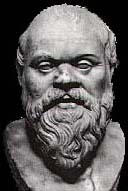1. In what
sense can this work be read as an “African” novel?
2. For whom do you
think this novel was written: Africans, Westerners, or a universal audience?
3. Could this work
be seen as an effort to decolonize contemporary views of Africa?
4. What does Achebe
achieve by titling this novel with a line from a famous European poem?
5. How is the world
of Umuofia and traditional Ibo culture initially portrayed?
6. How crucial to
the novel are the particularities of time and place in this setting?
7. Who are the central
characters in the novel and how are they related to one another?
8. What is the central
problem or conflict on which the novel focuses?
9. What seem to be
the dominant institutions of the Ibo community depicted in the novel?
10. How does the social
structure depicted here compare with that of Jane Austen’s England?
11 What do we learn about
central values of Ibo culture through ‘s character Okonkwo?
12. Are property and marriage
as significant to the Ibo as to Austen’s English characters?
13. What most characterizes marriage
and family life in the world of this book?
14. How would you describe
the primary roles of men and women in this world?
15. To what degree do these
roles accord with those in the modern Western society?
16. How does Achebe stress
the significance of feminine roles in Ibo culture--and why?
17. How comfortable is
Okonkwo with gender lines in his society or with his “manliness”?
18. What seems to be the
significance of Okonkwo’s beating of his wife?
19. To what degree is Okonkwo’s
failure to balance masculinity and femininity a key fault in him?
20. How does Okonkwo’s
relationship to his son Nwoye compare with that of his father to him?
21. Why does Okonkwo favor
his ungrateful son Nwoye over his daughter Ezinma or foster son?
22. Might Okonkwo be overly
stubborn or misguided in trying to adhere to the letter of Ibo tradition?
23. How might Okonkwo find
a better equilibrium between upholding tradition and adapting to change?
24. How does the appearance
of Europeans affect the instability of Okonkwo’s life?
25. What aspects of Ibo society
does European contact most alter or destroy? Why?
26. Who in the Umoufia community
seem best able to adapt to these changes and how do they do so?
27. Is Okonkwo portrayed
as heroic for opposing change or simply foolish?
28. Might Okonkwo be understood
as a Greek style tragic hero with a flaw?
29. What seems to be Achebe’s
attitude about the collapse of traditional Ibo culture?
30. How might the theme
of the poem, Yates’ “The Second Coming,” relate to the novel?
 Freshman Studies
Freshman Studies
Freshman Studies